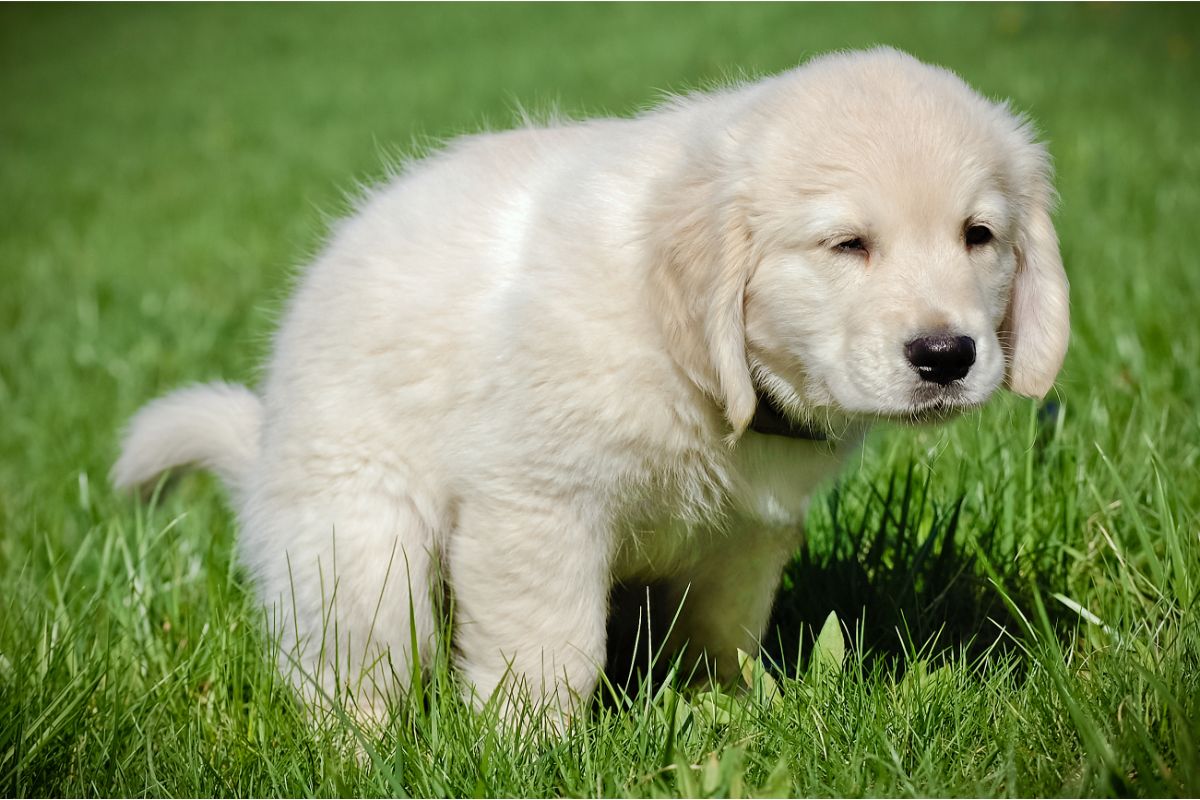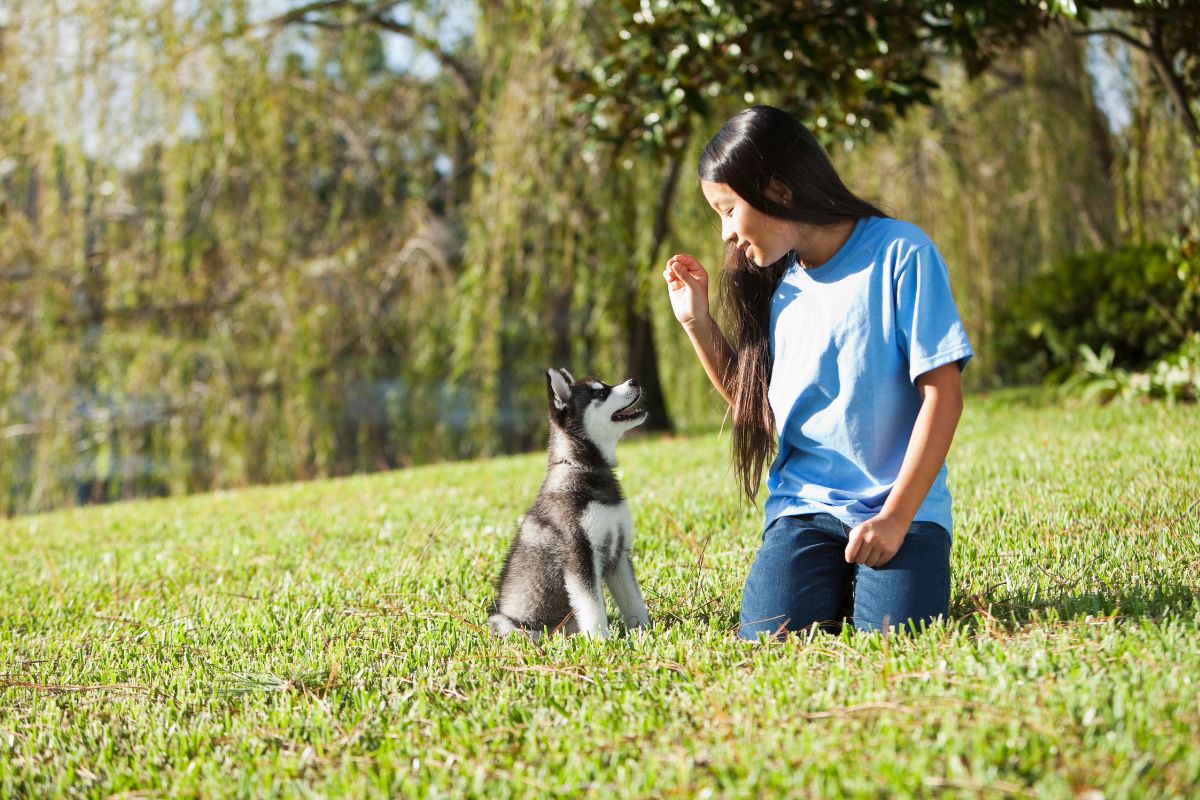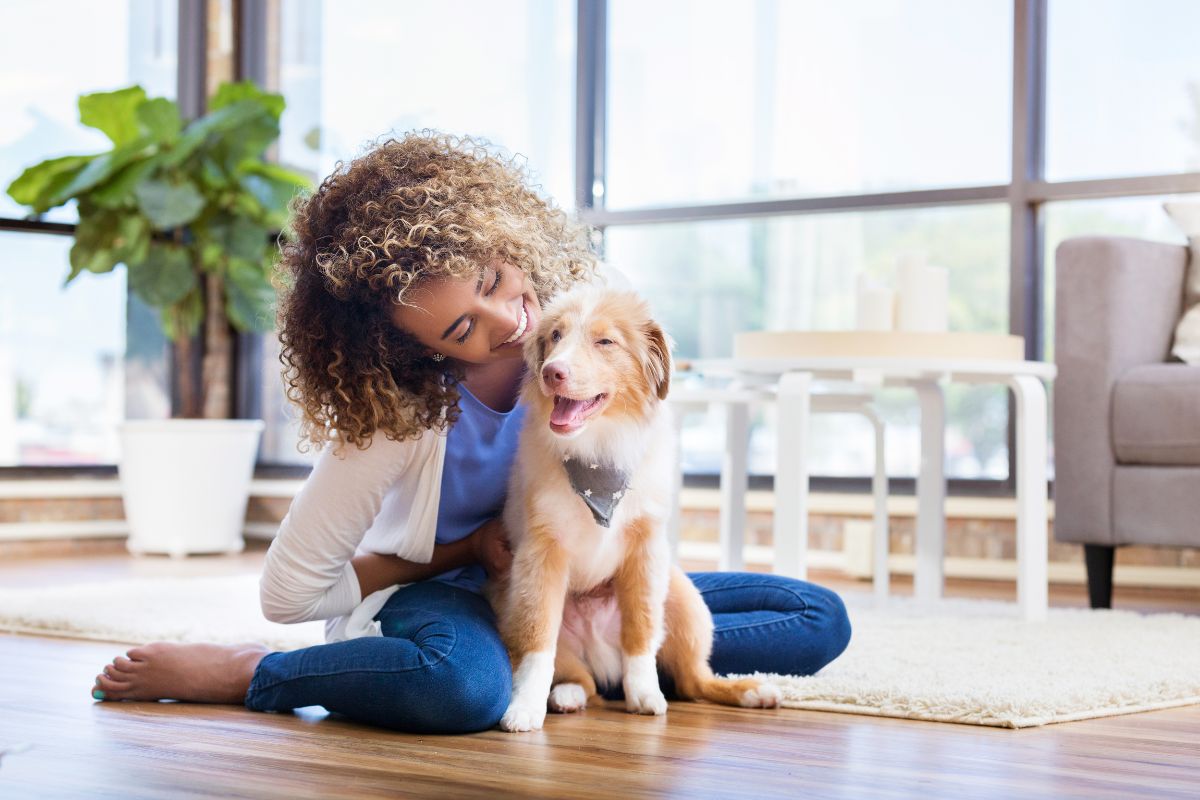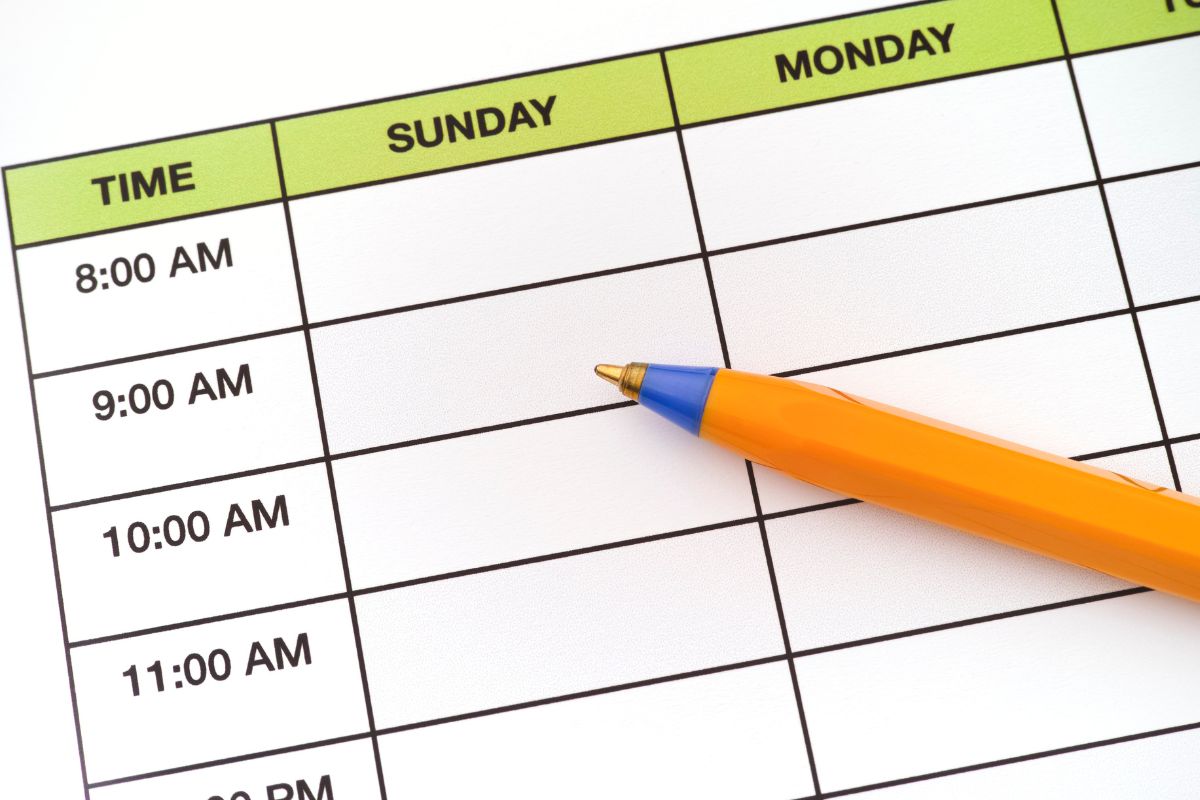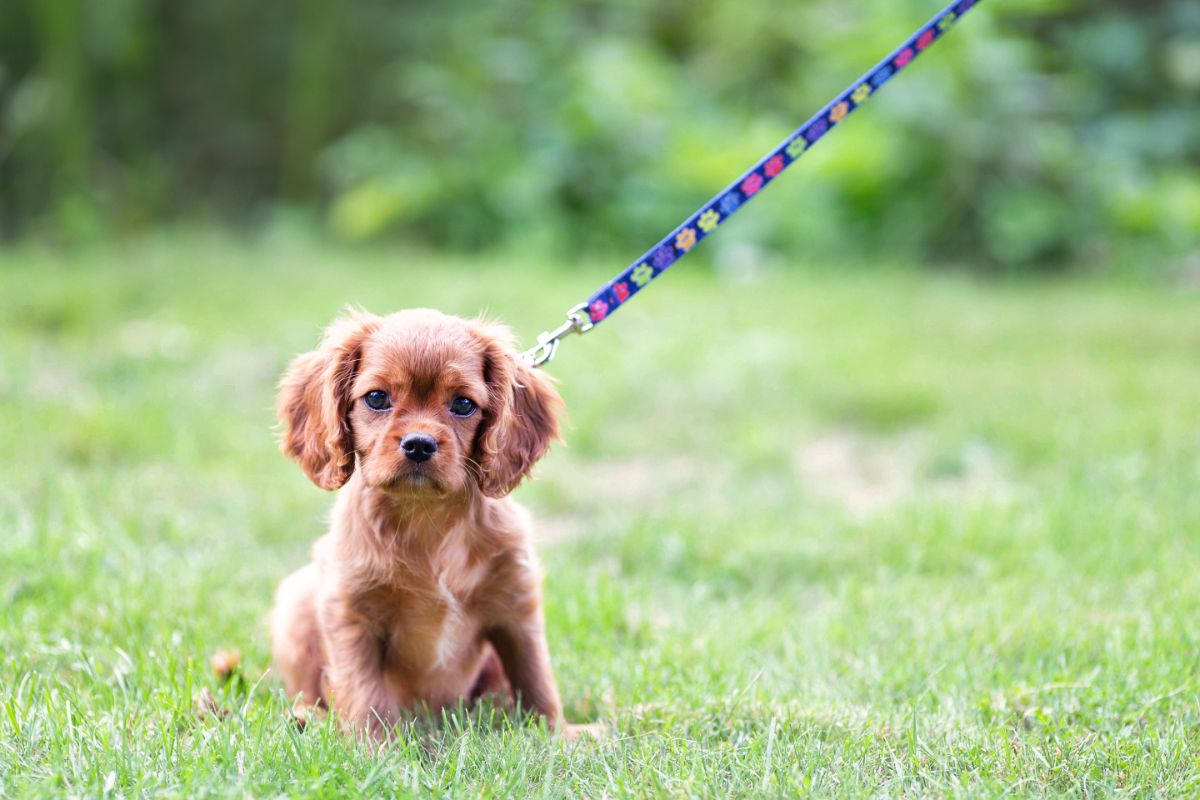We know – getting a puppy is so exciting! It’s the best day of your life, especially after weeks or even months of waiting.
Well, now that the wait is over, you are going to be busy all day every day, in the best possible way.
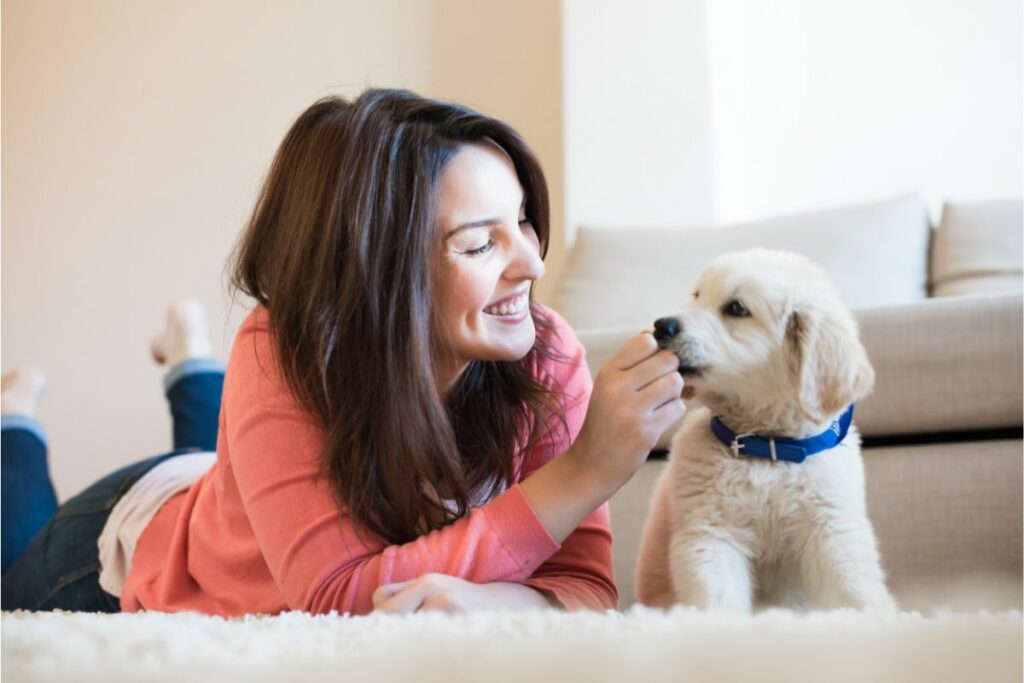
Getting a puppy might sound like it’s all fun and games, but this is not the time to sit back and relax. One of the first things you will want to do is start bonding with your precious pup.
However, you might be asking yourself… “What can I do to bond with my new puppy?”
This is an important question to answer. If you have never had a puppy before, you might feel a little lost. That’s okay! Everything is a learning experience, and we’re here to help.
So, if you want to bond with your puppy in a healthy way, you’re in the right place. Here, we will be going through eight healthy ways to bond with your puppy.
By the end of this, you will know exactly what to do.
Why Is It Important To Bond With Your Puppy?
Bonding with your puppy is essential because one of the biggest reasons people get dogs in the first place is for companionship.
You want to get to know the new member of the family, and they are going to want to get to know you!
When you bond with your puppy, you are building familiarity and trust. Without a bond, your puppy might be scared of you, or even indifferent – no one wants that!
Not only does bonding with your puppy serve a purpose, but it is also a lot of fun. You get to have fun with your pup and spend quality time with them, and there’s nothing better than that.
What Should You Expect From Your Puppy?
Before we dive in, you need to remember that your puppy is still a baby, and they are learning. They have not yet had the chance to experience the world and everything in it.
When they are so young (only around eight weeks old), they still have a lot of growing to do.
In their first couple of months, you should expect your puppy to go through lots of growth spurts.
During this time, they will build a mental library of everything around them, including positive and negative associations.
It is crucial for you to make this process as smooth and pleasant as possible, and build as many (healthy) positive associations as possible.
They will be learning about their environment, as well as the people and other animals in it. You need to be patient while they learn and grow their confidence.
While they are growing up and exploring, you will also be starting training and teaching them what they need to know to be safe and responsive to you.
Healthy Ways To Bond With Your Puppy

Below, we will go through eight healthy and effective ways that you can bond with your puppy. These are all great options that you can put to work early on, so you know they are going to be long-lasting.
You might notice that a few of these points might not initially seem like “bonding” exercises, but you would be surprised!
Bonding with your puppy while also teaching them something is great – you get two birds with one stone.
However, do not always try to do this. Sometimes, you just need to relax with your puppy without having a lesson in mind!
1. Learn How To “Talk” To Your Puppy
Like humans, the way we speak, the tone of voice we use, and our body language speak volumes – even to a puppy.
You need to learn how to “talk” to your puppy in the early days so that you can better communicate with them.
While pups can’t understand human conversations (as far as we know), they can be trained to understand various commands. Because of this, you need to know how to use your voice to get the message across.
Excited tones can amp up an already excitable and energetic puppy more, so be careful with this!
On the other hand, using that same excited tone can help to motivate your puppy or give them more energy if they are more low-key relaxed.
You can use your voice differently depending on the situation, and your puppy’s personality.
Speaking with a steady and neutral voice can help to calm down an excited puppy, and it can also soothe anxiety.
It’s important to think about your tone of voice before jumping into anything and make sure your body language and energy are right because puppies will be able to sense anger, frustration, and all kinds of other emotions.
Some important things to teach your puppy are as follows:
- Teach them their name
- Coming when called
- Establish eye contact
- Learn to lure them with food
2. Handling And Cuddling Will Build Trust

We all love cuddling up with puppies, but it’s easy to build bad habits if you do it wrong.
When you cuddle with your puppy, make sure they are not the ones jumping up on you or doing any other behavior that you don’t want.
While cuddling and handling your puppy, you need to get them used to you touching different parts of their bodies. Some puppies do not like their paws touched, or their tail.
You need to work past this and get them used to it – for their own good. A trip to the vet is no fun when you have an angry dog who will not let the vet check them properly.
Make sure to reward them as you do this so that you are reinforcing the behavior when they let you touch them. This might be a slow process, depending on your puppy, but it is crucial.
You can also give your sleepy puppy a gentle massage rather than petting them. This will help them to relax and wind down even more.
While doing this, getting your puppy used to grooming would also be a good idea.
Doing things like cleaning their eyes or gently brushing their fur will start getting them used to it.
You do not want to end up with a dog who hates being groomed – especially if it is a breed that will need it constantly.
3. Puppy Training Will Help
You need to start training your puppy young, and obedience command training is a great place to start.
Training is done to make everyone’s lives easier and to keep your puppy safe. It gives both owner and puppy a sense of accomplishment – as long as you are doing it right.
There are online puppy schools or physical “schools” you can go to for puppy training. These can help you bond and gain a better understanding of each other.
Your puppy will be able to build up their skills and learn all kinds of new and useful commands.
Without training, it’s easy to have a lawless dog who does as it pleases. While we all want our dogs to be happy and healthy, this is not the way to do it.
No training can put your dog in danger, and it will make life more difficult than it needs to be. This is especially the case when you are out in public and with other people or animals.
Training is crucial! Start with a puppy, and you will both reap the rewards.
4. Make Use Of A Puppy Schedule
Like many people, puppies do well with a schedule to follow. They are creatures of habit and like to be let out, get fed, and go potty on a schedule.
While it might not be necessary to schedule everything, it will help a new puppy to get incorporated into a new family much easier.
Using a routine will help to develop good eating habits, which makes taking them to go potty a much easier process.
When your puppy knows the routine, they will be more relaxed, rather than wondering what is going to happen next every day.
Try to create a puppy schedule that coincides with your usual day-to-day schedule. This will make the process much smoother and easier to keep up.
Bear in mind, this might be more difficult in the early days. However, as time goes on, this should become much easier as everybody gets settled together.
5. Make Sure Your Puppy Gets Their Own Space, Too

Everything about getting a puppy can be overwhelming – for both you and the pup!
With so many new people, sights, smells, and sounds, you need to make sure that your pappy has somewhere to go to just take a step back.
You might want to spend every hour of every day with them, but they need their space, too. Your puppy needs a spot where they can feel safe and relax away from the business of their new lives for a while.
Their bed or crate needs to be their safe space, and you must not violate it.
Make sure this spot is in an area that is out of the way, but where you will still be visible. Your pappy could develop separation anxiety if they feel too isolated (see also “Littermate Syndrome In Dogs“)!
This will help them to become well-adjusted and independent.
Set up a playpen somewhere that makes sense. Bear in mind that this phase will not last forever, so you might need to move some things around in the meantime to make it work.
6. Exercise Your Puppy Daily
Anyone who has had a dog before will know that exercising their pups is critical. Once your puppy is ready to go outside, make sure you take them for walks or even play around the garden at first.
A bored puppy will become a destructive puppy. As long as they get the exercise they need, they will not have all that energy to put into being destructive – that’s what we want.
Not only will exercise prevent destructive behaviors, but it will keep your puppy healthy, too. Living a sedentary lifestyle can cause all kinds of health issues.
This includes breathing difficulties, weak joints and bones, diabetes, obesity, and a variety of others. Keep your puppy strong by making sure they get all the exercise they need every day.
With that being said, be sure to not overdo it! Sure, puppies often have lots of energy, but they are still babies, and they don’t always know when enough is enough.
If they get too much exercise, this can also be damaging to them. They can damage their joints, which can have long-lasting negative impacts.
The best thing you can do is talk to a professional. Take your puppy to the vet, and get recommendations for what exercise would be suitable for them.
Alternatively, if you know any other qualified people who can give you advice, ask them! Always be cautious with your puppy, because they do not know their own limits yet.
As the brown-up in the situation, you need to be responsible and do right by them. It is easy for a puppy to be over-stimulated when they start exploring the greedy big world.
Get them used to going out and experiencing new things safely.
When you start taking them for walks, make sure to practice things like “heel” and correct walking etiquette. This will make your life much easier down the line for both of you.
7. Turn Everything Into A Game
When we say everything we don’t mean everything, but you get the picture. Playtime is crucial when it comes to bonding with your puppy.
How much your puppy wants to play, and how soon after arriving they make this known, will depend on the puppy you get.
Some like to play immediately, while others need to take some time to get acquainted with their new environment. Both are okay!
Games like hide and seek, fetch, and catch are all great puppy play games when the time is right. You can also play tug if your puppy wants to play a little rougher.
If you want to play a game that will help with recall, start with hide and seek. Start this with hiding in plain sight, like behind a sofa.
Call your puppy’s name, and give them a treat when they find you. When they start to get better at the game, up your hiding spots to make it more fun.
It’s all about positive reinforcement and making good habits. Playing games is a great way to do this without making it feel like work for either party involved.
8. Set Healthy Boundaries
Healthy boundaries are something both you and your puppy will be grateful for. These boundaries apply to both parties involved because you need to respect their boundaries, too.
The whole point of the boundaries you set is to let your puppy know the rules in the house, and what is and is not acceptable behavior.
Believe it or not, healthy boundaries will only make your bond stronger. Your puppy will look to you for direction if they are uncertain of things, highlighting your bond and trust.
If you fail to put boundaries in place, your home is soon going to be wrecked. Bad behaviors will grow, and before you know it, your favorite sofa is no more.
Potty accidents and chewing are two of the most common issues you will face, but these can easily be corrected with boundaries and positive reinforcement.
Use things like playpens and baby gates in the early stages. This will create a physical boundary where you know your puppy will be safe. As they get older, they will get to explore more safely.
Final Thoughts
Getting a puppy is beyond exciting, but we need to remember that there are rules and boundaries in place for a reason.
Bonding with your puppy is crucial from the start, but don’t overdo it and make it an unpleasant experience for either party.
There are lots of fun ways to bond with your puppy, like doing some puppy training or playing games such as hide and seek or tug.
However, you also need to make sure that you set healthy boundaries and give your puppy space when they need it.
Together, all of these things will set your puppy up for success, and they will grow up to be both independent and well-adjusted.
This is something that you will both be grateful for, and you will both reap the rewards in time.
Hopefully this article has been helpful, and you now know how to start bonding with your puppy!
Remember to have fun and enjoy the process, but also have patience. All the time and effort will be worth it – and who doesn’t want to spend time with puppies, anyway?
- How To Teach Your Puppy Their Name Easily! - July 18, 2023
- Is Your Puppy Counter Surfing? Find Out How To Stop It! - July 18, 2023
- How To Train Your Puppy For Car Rides: Everything You Need To Know - July 18, 2023



